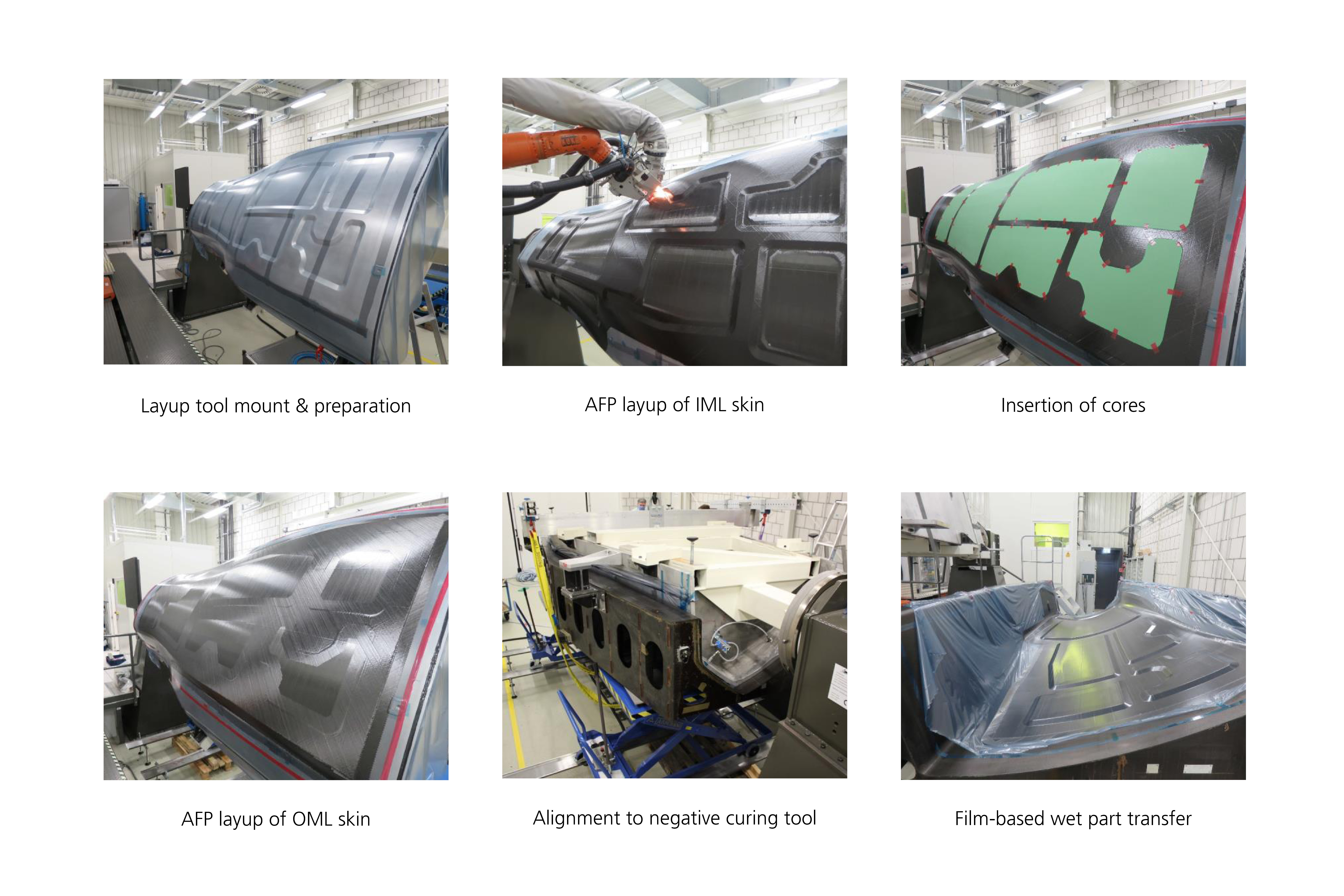Prepreg deposit with a high degree of automation
Carbon fiber reinforced plastic (CFRP) is a material that is used mainly in the aerospace and automotive industries. The raw material, which mainly consists of carbon fibers, is molded into high-performance components that can withstand the most significant stresses. As part of the EU-funded "ProAir" project, a highly automated process was developed for this purpose, enabling for example, the production of large-format shell components for the high-speed "Racer" helicopter.
The manufacturing process is based on Automated Fiber Placement (AFP). This development represents a significant milestone because, on the one hand, component manufacture by manual prepreg placement is becoming increasingly difficult for large structures, on the other hand, automation is not economical for small batch sizes.
